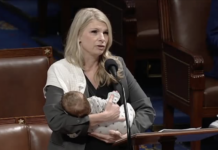
ATLANTA (GA Recorder) — Mental health advocates are warning of a coming mental health and substance abuse crisis on the heels of a pandemic that brought isolation to many and heartache to those who lost loved ones to COVID-19.
“We’re looking at this – as mental health – as being the next pandemic,” said Abdul Henderson, executive director of Mental Health America of Georgia.
“Because a lot of people will emerge with untreated issues, and if they don’t have the access or the ability to seek care – and that can come through the lack of transportation, lack of employment, lack of housing, all these other structural societal issues – it can really blow up in our face if we’re unprepared.”
Georgia now ranks last in the nation for access to mental health care, according to a report from Mental Health America that looks at access to insurance and treatment, quality, the cost of insurance, and other factors.
Jeff Breedlove, chief of communications and policy at the Georgia Council on Substance Abuse, called the recent rise in substance use “the epidemic within the pandemic.”

Henderson, Breedlove, and other advocates outlined a list of proposed solutions at a Monday press conference at the state Capitol, including plans to ramp up early identification initiatives, grow the state’s workforce for mental health and substance use disorder professionals, and increase efforts to integrate mental health care with medical care.
They are pushing for legislative changes for when lawmakers return to Atlanta in January and for state officials to utilize federal coronavirus relief funds as a step toward addressing what they say is an emerging crisis.
“We are asking our legislators, our local leaders, our leaders in our companies and communities to vote for mental health in the legislative 2022 session,” said Kim Jones, executive director of the Georgia chapter of the National Alliance on Mental Health. “It is the year to make something happen.”
The group’s call for action comes as many Georgians start to venture back out to restaurants, concerts, and other public settings they avoided when the coronavirus upended life last spring, even as new variants now pose new potential risks. Others are heading back to the office after a year-long absence, and young students are preparing for a return to the classroom after a year of virtual learning. The return to quasi normalcy has left some feeling anxious.
But for many, the pandemic has also left lasting scars. Nearly 21,500 people have died from COVID-19 in Georgia, leaving scores of families and friends coping with their grief.
The looming end of the eviction moratorium later this month could bring fresh economic hardships to those hanging on the edge. Jobless Georgians are also no longer receiving the extra $300 a week in federal unemployment over concerns it was a disincentive for people to go back to work.
“I have worried about how many will become homeless when that edict is lifted because of the loss of income,” state Rep. Sharon Cooper said at Monday’s press conference. “But even if they have survived and they find they can go back to their job and they don’t get evicted – you know, worry just tears all of us apart.”
The Marietta Republican has her own worries about the potential fallout, including more people likely seeking care, resorting to drugs and alcohol, or turning to suicide.
Cooper touted a measure passed earlier this year that paves the way for broader use of telehealth beyond the pandemic when people turned to the videoconferencing format to consult their doctor or check in with their therapist. Lawmakers also boosted funding for mental health earlier this year, but about $32 million of the cuts made last summer to the state Department of Behavioral Health and Developmental Disabilities remain, according to the Georgia Budget and Policy Institute.
Cooper said Monday she is meeting with stakeholders to iron out plans for next session. But she did point to a bill she filed this year that would empower law enforcement to help connect someone in distress with a physician for an emergency examination without having to charge them with a crime.
“If someone is obviously mentally ill, why do they have to be charged with a crime so that when they do get help, and they get back on their feet, they are now dealing with a criminal charge?” Cooper said.
State Rep. Gregg Kennard, a Lawrenceville Democrat, heads a ministry that works with those wrestling with addiction and mental health challenges. People often abuse drugs and alcohol because of an untreated mental health diagnosis, he said.
“The largest mental health service provider in our state is Georgia state prisons,” Kennard said at the press conference. “So, our county jails and our prisons are filled with folks that we have not properly given them access to mental health care. One could make an argument that we have criminalized mental health.”







